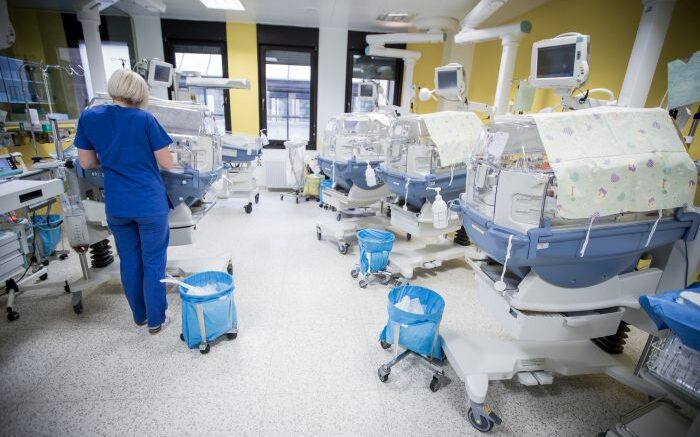In neonatal intensive care units (NICUs), neonates requiring medical care after birth, including very vulnerable preterm infants, are housed in incubators. Previous studies have reported that the standard chemical disinfection measures used to disinfect these incubators are insufficient to eradicate contaminating bacteria, leading to a worrying infectious risk for preterm neonates. This study by Reboux, et al. (2023) aimed to evaluate the efficacy of a disinfection method based on steam pulverization to eradicate the persistent bacterial contamination in incubators.
In a tertiary NICU, 20 incubators were monitored qualitatively for bacterial contamination at five different sites (the rubber grommet, the left door handles, the temperature adjustment button, the mattress and the scale) using a culture method at three times: before and after steam pulverization then 24 h after turning on and housing a new neonate. Clinical data of neonates housed in each incubator were retrieved from the medical records to identify potential occurrence of late onset sepsis (LOS).
Just after steam pulverization, only two incubators were free from bacteria. Before disinfection 87% of all the samples were contaminated compared to 61% after disinfection. After 24 h, the proportion of contaminated samples reached 85%. Mattresses and scales were the most frequently contaminated incubator sites with respectively 90% and 80% positive samples after disinfection compared to 100% and 90% before disinfection. Coagulase-negative staphylococci, Enterococcus, Enterobacteria and Bacillus resisted disinfection and were identified on respectively 90%, 20%, 5% and 45% of incubators just after disinfection. Three preterm neonates developed LOS after being housed in a disinfected incubator but the bacterial species involved have not been identified in their incubator after disinfection. In two cases, the bacterium had been isolated from the mattress 24 hours after housing the infected patient.
The researchers conclude that steam pulverization is not sufficient to eradicate bacterial contamination of incubators. These results highlight the urgent need for an effective disinfection method, especially for mattresses that are in constant contact with patients. New incubator designs and mattress protections must be developed, they say.
Reference: Reboux M, et al. Disinfection of incubators in neonatal intensive care units: impact of steam pulverization on bacterial colonization. Antimicrobial Resistance & Infection Control. Vol. 12, Article number: 18 (2023).
